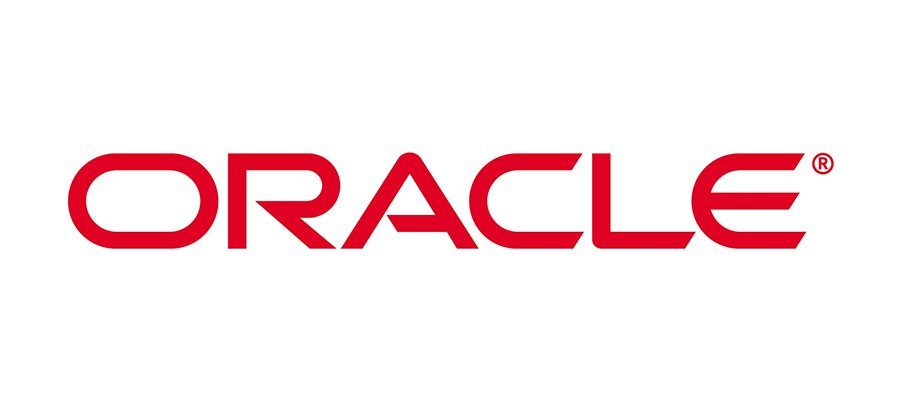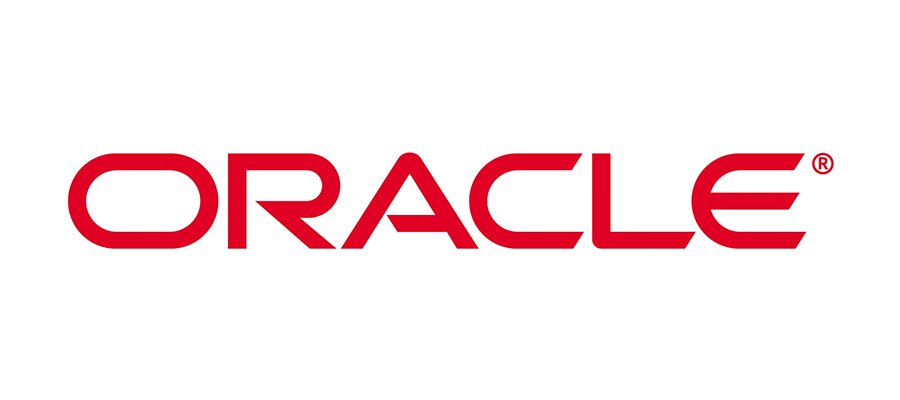

Data Integrator 12c Integration and Administration Ed 3 NEW
Sobre este Treinamento
- Administer ODI resources and setup security with ODI
- Apply ODI Topology concepts for data integration
- Describe ODI Model concepts
- Describe the architecture of Oracle Data Integrator 12c
- Design ODI Mappings, Procedures, Packages, and Load Plans to perform ELT data transformations
- Explore, audit data, and enforce data quality with ODI
- Implement Changed Data Capture with ODI
- Integrate ODI with Version Control Systems (Subversion)
- Extend ODI to include the Big Data Hadoop ecosystem
What you will learn
Oracle Data Integrator is a comprehensive data integration platform that covers all data integration requirements from high-volume, high-performance batch loads, to event-driven integration processes and SOA-enabled data services. Oracle Data Integrator’s Extract, Load, Transform (E-LT) architecture leverages disparate RDBMS engines to process and transform the data – the approach that optimizes performance, scalability and lowers overall solution costs.
Learn To:
- Use Oracle Data Integrator to perform transformation of data among various platforms
- Design ODI mappings, procedures, and packages to perform ELT data transformations
- Administer ODI resources and set up security with ODI
- Perform data integration and transformation among various platforms
- Use the ODI graphical interface to define procedures, packages, and ELT jobs
- Set up and maintain a secure, multi-user ODI environment
- Implement changed data capture with ODI
- Use ODI Web services and perform integration of ODI with SOA
- Perform various maintenance tasks on Exadata Database Machine
Benefits to You
Taking this course will teach you how to improve performance and reduce integration costs across your organization’s heterogeneous systems. You’ll be able to centralize data across databases using your new skills to perform data integration, design ODI Mappings, and set up ODI security. In addition, Oracle Data Integrator can interact with the various tools of the Hadoop ecosystem (such as Hive, Hbase, HDFS, Oozie, etc), allowing administrators and data scientists to farm out map-reduce operations from established relational databases to Hadoop. They can also read back into the relational world the results of complex Big Data analysis for further processing. Implement High-Performance Movement and Transformation Expert Oracle University instructors will teach you how to use Oracle Data Integrator (ODI) 12c to implement high-performance movement and transformation of data among various platforms.
This course covers using ODI graphical user interfaces that enable users to access different ODI components and resources that form ODI infrastructure. ODI Repositories using the graphical interfaces, you’ll develop the knowledge to create and manage ODI repositories, which store configuration information about the IT infrastructure, the metadata for all applications, projects, models and other ODI artifacts. ODI Topology, Models, Mappings, and Other Objects Furthermore, you’ll develop the ability to create the ODI Topology, organize ODI models and design ODI Mappings, procedures, packages and other objects.
This course is based on Oracle Data Integrator 12c (12.2.1.3). Please Note The latest release of Oracle Data Integrator supports storing ODI artifacts into source code management systems (such as Subversion). This course teaches you how to integrate ODI with Subversion.
Carga Horária: 5 dias 
Pré-requisito
Basic knowledge of ELT data processing
Database Administrators
Sales Consultants
System Administrator
Technical Administrator
Technical Consultant
Público-alvo
Conteúdo
Introduction
Identifying the Course Units
Why Oracle Data Integrator?
Overview of ODI Architecture
Overview of ODI Components
About Graphical Modules
Types of ODI Agents
Overview of Oracle Data Integrator Repositories
Administering ODI Repositories and Agents
Administrating the ODI Repositories
Creating Repository Storage Spaces
Creating and Connecting to the Master Repository
Creating and Connecting to the Work Repository
Creating a Wallet to Securely Store Credentials
Managing ODI Agents
ODI Topology Concepts
Overview of ODI Topology
About Data Servers and Physical Schemas
Defining the Physical Architecture
Defining the Logical Architecture
Mapping Logical and Physical Resources
Defining Agents
Defining a Topology
Planning the Topology
Describing the Physical and Logical Architecture Overview of Topology Navigator
Creating Physical Architecture
Creating a Data Server
Testing a Data Server Connection
Creating a Physical Schema
Creating Logical Architecture
Overview of Logical Architecture and Context Views
Linking the Logical and Physical Architecture
Setting Up a New ODI Project
Overview of ODI Projects
Creating a New Project
Creating and Maintaining Folders
Organizing Projects and Folders
Understanding Knowledge Modules
Exchanging ODI Objects and Sharing Global Objects
Exporting and Importing Objects
Creating and Labeling with Markers
Oracle Data Integrator Model Concepts
What is a Model?
Understanding Metadata in ODI
Understanding Reverse Engineering
Creating Models
Organizing Models
Creating Data stores
Configuring Constraints in ODI
Creating Keys and References
Organizing ODI Models and Creating Data stores
What is a Mapping?
Business Rules for Mappings
Creating a Basic Mapping
What is a Join?
What is a Filter?
What is a Constraint?
What is a Staging Area?
ODI Mapping Concepts
What is a Mapping?
Business Rules for Mapping
What is a Mapping, a Filter, a Join?
Overview of Integration Process
What is a Staging Area?
Execution Location
Mapping with Knowledge Modules (KM)
Creating an Intermediate Mapping
Designing Mappings
Designing a Mapping
Multiple Source Data stores
Creating Joins
Filtering Data
Disabling Transformations
Overview of the Flow
Specifying the Staging Area
Selecting Knowledge Modules
Mapping: Monitoring and Debugging
Monitoring Mappings
Creating Objects with Operator
Viewing Sessions and Tasks
How to Monitor Execution of a Mapping
How to Troubleshoot a Session
Keys to Reviewing the Generated Code
Working with Errors
Tips for Preventing Errors
Designing Mappings: Advanced Topics 1
Mapping with Business Rules
Overview of Business Rule Elements
Creating and Tracking Variables
Creating User Functions
Mapping Substitution Methods
Modifying a KM
Showing Variable Values in Log
Customizing Reverse Engineering Using RKM
Designing Mappings: Advanced Topics 2
Using Partitioning in a Mapping
Reusable Mappings
Derived Select (Subselect) for Reusable Mappings
Using User Functions
Creating a User Function
Using Substitution Methods
Developing Your Own Knowledge Module
Using ODI Procedures
What is a Procedure?
Examples of Procedures
Creating Procedures
Adding Commands
Adding Options
Running a Procedure
Viewing Results with Operator Navigator
Using ODI Packages
What is a Package?
Creating a Package
Executing a Package
Review of Package Steps
Creating Model, Submodel and Datastore Steps
Variable Steps
Controlling the Execution Path
Error Handling
Step-by-Step Debugger
Starting a Session in Debug mode
Specifying Debug Properties
Control Execution Flow
Screen Step Numbering
New Functionality
Menu Bar Icons
Managing ODI Scenarios
What is a Scenario?
Generating a Scenario
Executing a Scenario
Automating Scenario Management
Scheduling the ODI Scenario
Managing Schedules
Using Load Plans
What Are Load Plans?
Load Plan Editor
Load Plan Steps
Defining the Restart Behavior
Benefits of Using Load Plans
Handling Failed Load Plans
Enforcing Data Quality with ODI
Why Data Quality? When to Enforce Data Quality?
Data Quality in Source Applications
Data Quality Control in the Integration Process
Data Quality in the Target Applications
Data Quality Business Rules
Enabling Static or Flow Control for a Mapping
Setting the Options, Selecting Which Constraints to Enforce
Reviewing Erroneous Records
Working with Changed Data Capture (CDC)
Why Changed Data Capture? Techniques of Changed Data Capture
Changed Data Capture in ODI
CDC Strategies and Infrastructure
CDC Consistency
Creating Change Data Capture (CDC)
Viewing Data/Changed data
Journalizing
Oracle GoldenGate Integration
Advanced ODI Administration
Introduction to ODI Security Navigator. Security Concepts: Overview, Defining Security Policies
Creating Profiles, Creating Users, Assigning a Profile to a User, Assigning an Authorization by Profile or User
Defining Password Policies
Implementing External Authentication
Generating Topology Reports
Integration of ODI with Enterprise Manager
Java EE Agent and Enterprise Manager Configuration with WebLogic Domain
Using ODI Console
Integrating ODI with Subversion
ODI: VCS Integration
ODI: Selecting the Required VCS
SVN Connections
Configuring the Subversion Repository with ODI
Adding a Single Non-Versioned Object to SVN, Adding Multiple Non-Versioned Objects to SVN
Creating a New Version for an Object. Creating Full or Partial Tags in the Subversion Repository
Creating Full or Partial Tags in the Subversion Repository
Performing a Branch Merge
Integrating Big Data with ODI
Big Data Concepts
Emergence of Apache Hadoop. Hadoop Ecosystem
Apache HBase, Apache Hive, Apache Pig. Apache Spark, Apache Sqoop, Apache Oozie
Hadoop Data Integration: Overview
Big Data Knowledge Modules Matrix
ODI: Hadoop Integration Process
ODI: Hadoop Integration Process
ODI: Hadoop Integration Process
Atendimento Personalizado
Para saber mais sobre os treinamentos, certificações e soluções de TI da SoftSell, entre em contato com a gente.
É só escolher o seu canal preferido e aguardar breve resposta em horário comercial:
ENDEREÇO
Rua Emiliano Perneta, 680 – 9º Andar
Centro – Curitiba – Paraná – 80420-080

